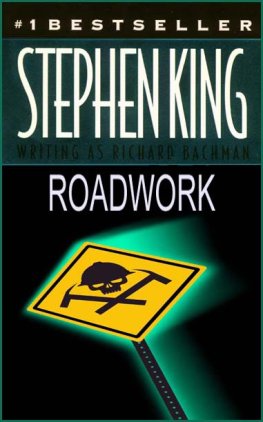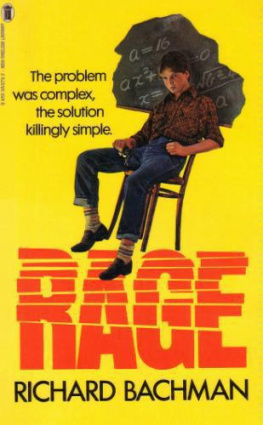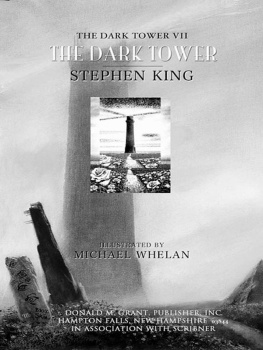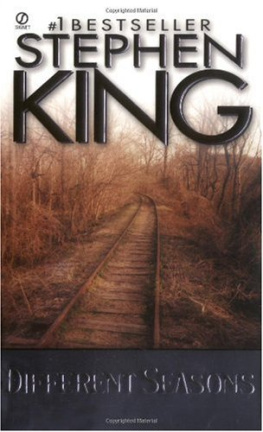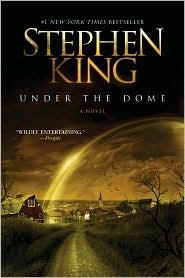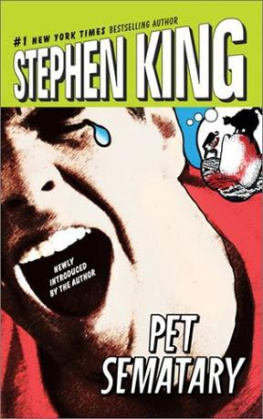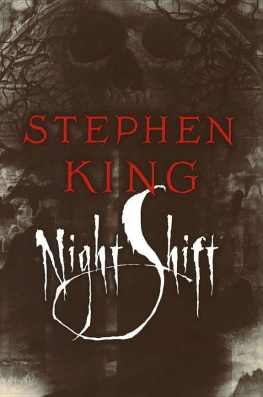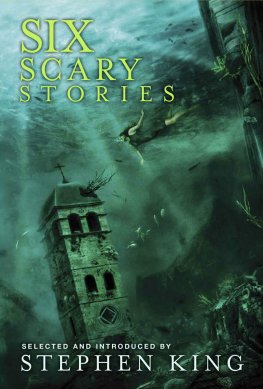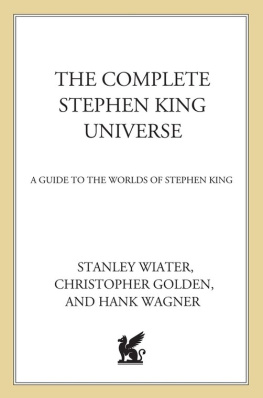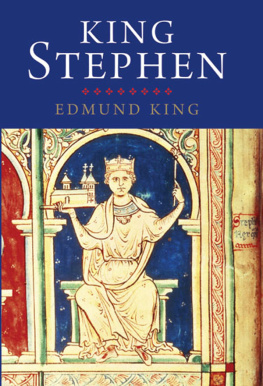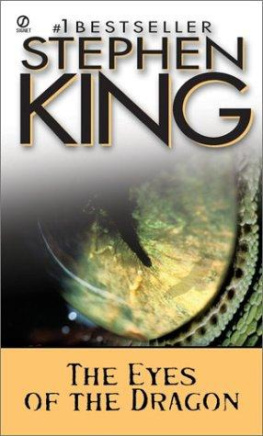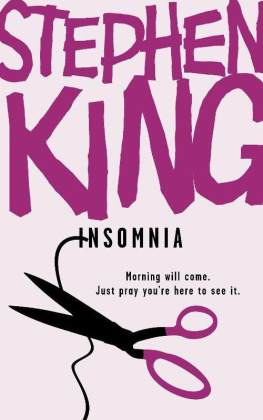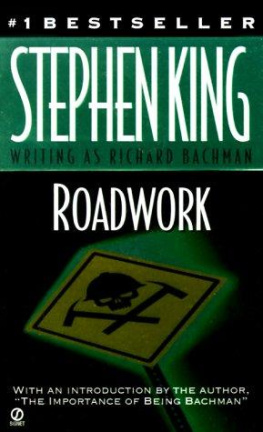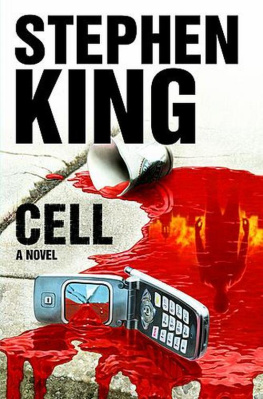Stephen King - Roadwork
Here you can read online Stephen King - Roadwork full text of the book (entire story) in english for free. Download pdf and epub, get meaning, cover and reviews about this ebook. year: 1981, genre: Science fiction. Description of the work, (preface) as well as reviews are available. Best literature library LitArk.com created for fans of good reading and offers a wide selection of genres:
Romance novel
Science fiction
Adventure
Detective
Science
History
Home and family
Prose
Art
Politics
Computer
Non-fiction
Religion
Business
Children
Humor
Choose a favorite category and find really read worthwhile books. Enjoy immersion in the world of imagination, feel the emotions of the characters or learn something new for yourself, make an fascinating discovery.
- Book:Roadwork
- Author:
- Genre:
- Year:1981
- Rating:5 / 5
- Favourites:Add to favourites
- Your mark:
- 100
- 1
- 2
- 3
- 4
- 5
Roadwork: summary, description and annotation
We offer to read an annotation, description, summary or preface (depends on what the author of the book "Roadwork" wrote himself). If you haven't found the necessary information about the book — write in the comments, we will try to find it.
Roadwork — read online for free the complete book (whole text) full work
Below is the text of the book, divided by pages. System saving the place of the last page read, allows you to conveniently read the book "Roadwork" online for free, without having to search again every time where you left off. Put a bookmark, and you can go to the page where you finished reading at any time.
Font size:
Interval:
Bookmark:
Richard Bachman
Roadwork
What happens when one good-and-angry man fights back is murder-and then some
PROLOGUE
I dont know why. You dont know why. Most likely God dont know why, either. Its just Government business, thats all.
Man-in-the-street interview concerningViet Nam, circa 1967But Viet Nam was over and the country was getting on.
On this hot August afternoon in 1972, the WHLM Newsmobile was parked near Westgate at the end of the Route 784 expressway. There was a small crowd around a bunting-covered podium that had been hurriedly tossed together; the bunting was thin flesh on a skeleton of naked planks. Behind it, at the top of a grassy embankment, were the highway tollbooths. In front of it, open, marshy land stretched toward the suburban hem of the citys outskirts.
A young reporter named Dave Albert was doing a series of man-on-the-street interviews while he and his co-workers waited for the mayor and the governor to arrive for the ground-breaking ceremony.
He held the microphone toward an elderly man wearing tinted spectacles.
Well, the elderly man said, looking tremulously into the camera, I think its a great thing for the city. Weve needed this a long time. Its a great thing for the city. He swallowed, aware that his mind was broadcasting echos of itself, helpless to stop, hypnotized by the grinding, Cyclopean eye of posterity. Great, he added limply.
Thank you, sir. Thank you very much.
Do you think theyll use it? On the news tonight?
Albert flashed a professional, meaningless smile. Hard to tell, sir. Theres a good chance.
His sound man pointed up to the tollgate turnaround, where the governors Chrysler Imperial had just pulled up, winking and gleaming like a chrome-inlaid eight ball in the summer sunshine. Albert nodded back, held up a single finger. He and the cameraman approached a guy in a white shirt with rolled-up sleeves. The guy was looking moodily at the podium.
Would you mind stating your opinion of all this, Mr?
Dawes. No, I dont mind. His voice was low, pleasant.
Speed, the cameraman murmured.
The man in the white shirt said, still pleasantly, I think its a piece of shit.
The cameraman grimaced. Albert nodded, looking at the man in the white shirt reproachfully, and then made cutting gestures with the first two fingers of his right hand.
The elderly gentleman was looking at this tableau with real horror. Above, up by the tollbooths, the governor was getting out of his Imperial. His green tie was resplendent in the sun.
The man in the white shirt said politely: Will that be on the six or eleven oclock news?
Ho-ho, fells, youre a riot, Albert said sourly, and walked away to catch the governor. The cameraman trailed after him. The man in the white shirt watched the governor as he came carefully down the grassy slope.
Albert met the man in the white shirt again seventeen months later, but since neither of them remembered that they had met before, it might as well have been the first time.
Part one
NOVEMBER
Late last night the rain was knocking on my window I moved across the darkened room and in the lampglow I thought I saw down in the street The spirit of the century Telling us that were all standing on the border.
Al StewartNovember 20, 1973
He kept doing things without letting himself think about them. Safer that way. It was like having a circuit breaker in his head, and it thumped into place every time part of him tried to ask: But why are you doing this? Part of his mind would go dark. Hey Georgie, who turned out the lights? Whoops, I did. Something screwy in the wiring, I guess. Just a sec. Reset the switch. The lights go back on. But the thought is gone. Everything is fine. Let us continue, Freddy-where were we?
He was walking to the bus stop when he saw the sign that said:
AMMO HARVEYs GUN SHOP AMMORemington Winchester Colt Smith amp; WessonHUNTERS WELCOMEIt was snowing a little out of a gray sky. It was the first snow of the year and it landed on the pavement like white splotches of baking soda, then melted. He saw a little boy in a red knitted cap go by with his mouth open and his tongue out to catch a flake. Its just going to melt, Freddy, he thought at the kid, but the kid went on anyway, with his head cocked back at the sky.
He stopped in front of Harveys Gun Shop, hesitating. There was a rack of late edition newspapers outside the door, and the headline said:
SHAKY CEASE-FIRE HOLDSBelow that, on the rack, was a smudged white sign that said:
PLEASE PAY FOR YOUR PAPER!THIS IS AN HONOR RACK, DEALER MUST PAY FOR ALL PAPERSIt was warm inside. The shop was long but not very wide. There was only a single aisle. Inside the door on the left was a glass case filled with boxes of ammunition. He recognized the.22 cartridges immediately, because hed had a.22 single-shot rifle as a boy in Connecticut. He had wanted that rifle for three years and when he finally got it he couldnt think of anything to do with it. He shot at cans for a while, then shot a blue jay. The jay hadnt been a clean kill. It sat in the snow surrounded by a pink blood stain, its beak slowly opening and closing. After that he had put the rifle up on hooks and it had stayed there for three years until he sold it to a kid up the street for nine dollars and a carton of funny books.
The other ammunition was less familiar. Thirty-thirty, thirty-ought-six, and some that looked like scale-model howitzer shells. What animals do you kill with those? he wondered. Tigers? Dinosaurs? Still it fascinated him, sitting there inside the glass case like penny candy in a stationery store.
The clerk or proprietor was talking to a fat man in green pants and a green fatigue shirt. The shirt had flap pockets. They were talking about a pistol that was lying on top of another glass case, dismembered. The fat man thumbed back the slide and they both peered into the oiled chamber. The fat man said something and the clerk or proprietor laughed.
Autos always jam? You got that from your father, Mac. Admit it.
Harry, youre full of bullshit up to your eyebrows.
Youre full of it, Fred, he thought. Right up to your eyebrows. You know it, Fred?
Fred said he knew it.
On the right was a glass case that ran the length of the shop. It was full of rifles on pegs. He was able to pick out the double-barreled shotguns, but everything else was a mystery to him. Yet some people-the two at the far counter, for example, had mastered this world as easily as he had mastered general accounting in college.
He walked further into the store and looked into a case filled with pistols. He saw some air guns, a few.22s, a.38 with a wood-grip handle,.45s, and a gun he recognized as a.44 Magnum, the gun Dirty Harry had earned in that movie. He had heard Ron Stone and Vinnie Mason talking about that movie at the laundry, and Vinnie had said: Theyd never let a cop carry a gun like that in the city. You can blow a hole in a man a mile away with one of those.
The fat man, Mac, and the clerk or proprietor, Harry (as in Dirty Harry), had the gun back together.
You give me a call when you get that Menschler in, Mac said.
I will but your prejudice against autos is irrational, Harry said. (He decided Harry must be the proprietor-a clerk would never call a customer irrational.) Have you got to have the Cobra next week?
Id like it, Mac said.
I dont promise.
You never do but youre the best goddam gunsmith in the city, and you know it.
Of course I do.
Mac patted the gun on top of the glass case and turned to go. Mac bumped into him-Watch it, Mac. Smile when you do that-and then went on to the door. The paper was tucked under Macs arm, and he could read:
Font size:
Interval:
Bookmark:
Similar books «Roadwork»
Look at similar books to Roadwork. We have selected literature similar in name and meaning in the hope of providing readers with more options to find new, interesting, not yet read works.
Discussion, reviews of the book Roadwork and just readers' own opinions. Leave your comments, write what you think about the work, its meaning or the main characters. Specify what exactly you liked and what you didn't like, and why you think so.

